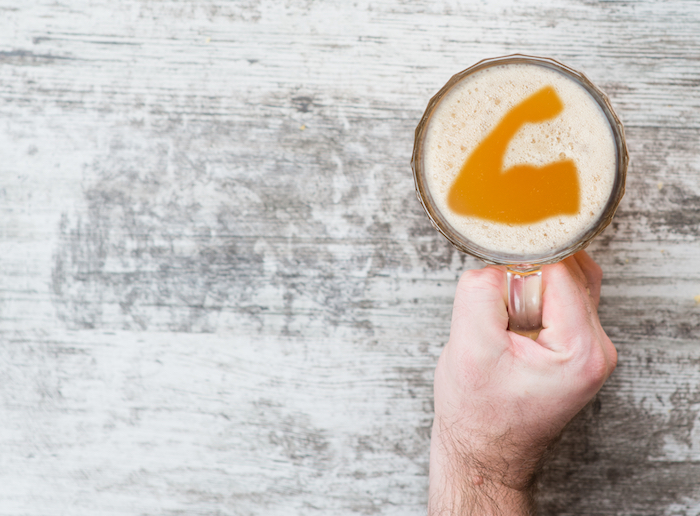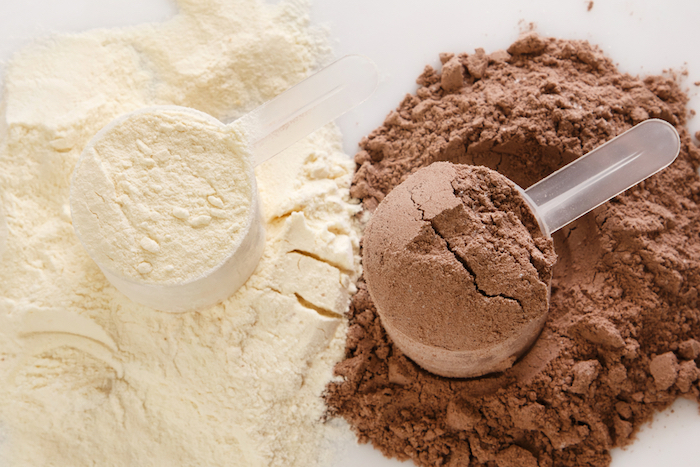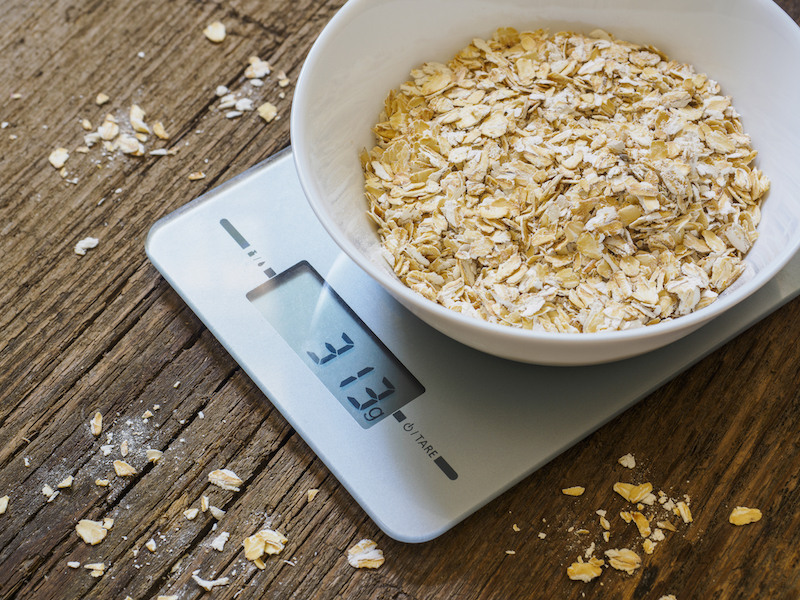Twenty-five all-time world records.
Twenty-five.
Dr. Stefi Cohen — she’s also a physical therapist — is one of the great athletes of our time.
We know that sounds hyperbolic, but did we mention the twenty-five world records? After spending three of her teenage years on Venezuela’s U17 national soccer team and then going on to win a state gold medal in Olympic weightlifting, she focused on powerlifting. Among her many accomplishments, she has the all time world record in the squat, deadlift, and total in two weight classes: as a -114lb athlete with a 202.5kg squat, 205kg deadlift, and 510kg total and as a -123lb lifter she nabbed world records with a 230kg squat and 240kg deadlift.
Stefi is also the co-owner of Hybrid Performance Method, a coaching company that helps their clients to accomplish whatever their athletic and aesthetic goals are. Their stated goal: to help you look like a bodybuilder, lift like a powerlifter, and move like a weightlifter. That approach is why Stefi has a phenomenal physique while being superhumanly strong, something that’s relatively rare.
So we talked to her about her diet and how she approaches the struggles she and her clients tend to encounter. Let’s start with the basics of her calories and macros, then we’ll get a little deeper.
Editor’s note: The content on BarBend is meant to be informative in nature, but it shouldn’t take the place of advice and/or supervision from a medical professional. The opinions and articles on this site are not intended for use as diagnosis, prevention, and/or treatment of health problems. Speak with your physician if you have any concerns.
Stefi Cohen’s Calories and Macros
Here are her stats:
- Height: 5″
- Weight: 130lb-140lb
- Body fat percentage: ~12%
- Calories for weight loss: 1,800
- Calories for weight gain: 2,500
- Protein: 130 grams
- Carbs: 180 grams
- Fat: 50 – 60 grams
That’s about a gram of protein per pound of bodyweight, which is pretty standard for athletes looking to maintain a strong, lean physique. When she’s trying to gain more weight in a strength cycle, the extra calories will typically come mostly from carbs, although she doesn’t cycle her carbs and calories throughout the week if she’s been lifting or not.
“I started paying more attention to how much energy I burn in a day just by non-exercise activity, so even if I don’t work out, I’m burning a decent amount of energy just moving and walking around,” she says. “So I don’t really change my intake day to day based on training.”
[Related: Use Our Macros Calculator to Get a Starting Point for Your Own Diet]
Stefi Cohen’s Daily Meals
So what makes up those macros? Well, you’re in luck, because she eats pretty much the same thing every day.
“I have a high fat breakfast and I try to avoid carbs in the morning, maybe a cup of orange juice at most, just because I feel like I can think better when I’m not pumped up with carbs,” she says. “And also because I can’t eat a lot of carbs (during a cut) because of the calories, I rather space them so they’re closer to my training.”
So her meals look like this:
Breakfast
- Eggs
- Chicken thighs
- Bacon
- Cherry tomatoes
Snack (optional)
- Popcorn
It’s amazing. For 3 cups it’s like, 3 grams fat, 3 grams protein, 10 grams carbs. For 3 cups! I munch on popcorn pretty much all day long if I’m feeling antsy or bored.
Lunch
- Ground beef, steak, or chicken breast
- Rice or sweet potatoes
- Leafy green vegetables
Snack
- Greek yogurt
- Fruit
- 1 tablespoon of nut butter
Dinner
- Ground beef or chicken
- Rice
- Sweet potatoes
- Vegetables
- Beer (1 bottle)
“People are always like, ‘What?! You can drink and still be lean?’ And the answer is yes, you can, if you can fit it into your calories in the day,” she says. “Obviously, I would never advise someone add 3 or 4 drinks a day, I guess that’s not good for you. But you can fit in a glass of wine or can of beer.”

Still, if that meal plan sounds a bit dry, you’ll be glad to know that she usually eats junk food late at night when, in her words, her willpower is running low. Whether it’s a McFlurry or Oreos with milk, she indulges guilt free because, well, partly because she has a healthy relationship with food, but also because she makes room in her calories and macros for a nighttime treat. That’s the beauty of calorie tracking.
In fact, Stefi even encourages sugary foods if they’re around a workout.
“It can help your performance if you eat it at the right time,” she notes. “You can have a can of regular Coke a half hour before you train — get forty grams of sugar straight to the dome and you’re ready to go.”
[Related: Your Complete Guide to Pre and Post Workout Nutrition]
While no foods are off limits for her, Stefi also tries to minimize very high fiber foods.
“I don’t have a big appetite, so if I eat something really fibrous or really heavy, I have a hard time eating again.”
To that end, her fruits and veggies are typically foods like spinach, tomatoes, mushrooms, orange juice, and plenty of fermented food like kimchi and kefir to keep her gut microbiome healthy. That’s the trillions of bacteria in your digestive tract that help you to break down and absorb nutrients from food, and a lot of interesting research suggests that fermented foods can help you get the most out of the other foods you eat.

Stefi Cohen’s Supplements
What about the supplements? She keeps thinks relatively simple.
- Protein powder
- Multivitamins
- Omega-3 fatty acids (fish oil)
- Vitamin D
- L-theanine
Theanine is an interesting one — it’s not an especially popular supplement, but the research supporting it is very interesting. It’s an amino acid found in the tea plant that’s been found to promote relaxation without a sedative effect. That means a lot of folks (like Stefi) take it to help with focus, and it could also reduce stress and anxiety without making you sleepy, which many “anti-anxiety supplements” (like magnesium) tend to do.(1)(2)
Stefi takes hers with caffeine and while it might sound counterintuitive to have a “relaxing” supplement with a “stimulating” food, it’s actually a pretty popular way to take theanine because it appears to help attenuate the jittery, unfocused feeling that can accompany a big hit of caffeine.(3)(4)(5)
The standard dose is 50 to 250 milligrams. If you’ve never taken it before it’s smart to start with a low dosage, and it’s even smarter to talk to your doctor first — you should never change your diet or supplement regimen without doing so.
[Related: The Lifter’s Guide to Theanine]

Stefi Cohen’s Diet Strategies
So that’s what she eats. But a topic we wanted to explore is how she coaches her clients to eat like this.
On Tracking Your Food
- Spending just one month tracking food can pay dividends
“There’s so much confusion and diets that you don’t know what to believe: Paleo, keto, carnivore, the China diet, whatever,” she says. And the only two things they have in common is one, they likely don’t work because you can’t stick to them, and two, they’re all trying to put you in a calorie deficit, either by taking away a group of foods or tricking you into eating less. And that’s just not sustainable.”
She’s familiar with people reading articles like this because they want to eat like Stefi Cohen so they can look like Stefi Cohen. But it’s easy to feel overwhelmed when you see all these numbers and think about weighing all your food.
Her advice? You just have to be OK with being boring and rigorously tracking your food intake — for a little while, at least.

“It’s the most difficult thing because it requires you to work and be consistent and track, which is boring and repetitive and mundane, but it’s absolutely the only way out,” she says. “You need to understand what your body’s energy requirements are, and calculators are just a guess. So, the place where everyone needs to start is tracking their weight every day for at least a month and tracking their intake every day for at least a month. That way you can see if you’re gaining or losing weight at this current energy intake.”
(Sorry, there’s no magic hack here.)
Research suggests people tend to underestimate their calorie intake by up to 50 percent, and once they start doing the work of tracking, Stefi says they’re usually shocked by how many calories from fat are sneaking into their diets.(6)(7)
So, the advice is to be boring and track your weight and energy intake for a month. The good news is that once you’ve done that, you’ll likely have developed the skill to be able to eyeball a lot of your foods.
“It gets to a point where you’ve tracked so much and you know your body so well that you can easily estimate every meal and know if, say, you’ve had a fatty steak at lunch then you should dial back your dinner. You start learning how to manage your intake just because it become second nature.”
View this post on Instagram
On NEAT
- The calories we burn outside of exercise vary significantly
Another reason it’s important to track your weight and your intake is that people’s calorie needs vary a lot, even among people who are the same age, weight, and height. Folks with similar bodies can burn different numbers of calories not just because of how much they work out, but also because of NEAT — non exercise activity thermogenesis.
“I didn’t believe it when I first learned about (NEAT), that some people fidget and move around more and that’s why they’re burning significantly more calories, until I started purposely moving more throughout the day by tracking my steps, standing more, things like that,” says Stefi. “The different it makes is huge. I believe about 30 percent of the calories you burn come from NEAT. That’s crazy. And those are things you have control over.”
On Shaping Your Environment
- Make your kitchen conducive to your goals
Stefi really emphasizes building an environment to help you with your goals.
Don’t buy high calorie foods if you struggle to avoid them, and if you do, put them in high up places that you’ll need a chair to reach. Keep filling, low calorie foods at eye level. So much of what we do throughout the day is based on habit and instinct; that’s why it’s so hard to stick to a diet, no matter how educated you are on what needs to be done.
“Small changes go a long way,” she says. “Take an honest look at your food preferences and make better choices throughout the day. Substituting the 400-calorie meal bar for some fresh fruit and yogurt will cut down one or two hundred calories. substituting bacon for turkey bacon saves like 18 grams of fat.”
View this post on Instagram
Wrapping Up
It’s also not a bad idea to hire a coach. This is not an ad for Hybrid Performance Method, rather it’s worth noting that everyone has different habits and roadblocks and struggles: emotional eating, binge eating, undereating, and so on. For some people can be hard to overcome these challenges and accomplish your nutrition goals without a dietitian or a coach to help you along the way.
That said, there’s no time like the present to try out some of these techniques and get started, just know what your goal is — weight loss, muscle gain, minimizing sugar — and then you can work toward it.
Featured image via @steficohen on Instagram.
Frequently Asked Questions
What does Stefi Cohen eat?
Depending on if she’s trying to lose or gain weight, she eats 1,800 to 2,500 calories per day with about 130 grams of protein, 200 grams of carbs, and 50 to 60 grams of fat.
Her meals are typically protein, starchy carb, and fibrous carbs. Lunch and dinner is pretty much always ground beef or chicken, rice or sweet potatoes, and leafy greens.
What supplements does Stefi Cohen take?
Protein powder, Vitamin D, fish oil, a multivitamin, and theanine. Theanine is an amino acid found in tea that seems to helps with focus.
What are Stefi Cohen's world records?
As a -114lb athlete she has a 202.5kg/446.5lb squat, 205kg/452lb deadlift, and 510kg/1124.4lb total and as a -123lb lifter she nabbed world records with a 190kg/419b squat, 230kg/507lb deadlift, and 524kg/1155.2lb total.
References
1. Kimura K, et al. L-Theanine reduces psychological and physiological stress responses. Biol Psychol. 2007 Jan;74(1):39-45.
2. Higashiyama A, et al. Effects of l-theanine on attention and reaction time response J. Funct. Foods. 2011 Jul;3(3):171-178.
3. Giesbrecht T, et al. The combination of L-theanine and caffeine improves cognitive performance and increases subjective alertness. Nutr Neurosci. 2010 Dec;13(6):283-90.
4. Owen GN, et al. The combined effects of L-theanine and caffeine on cognitive performance and mood. Nutr Neurosci. 2008 Aug;11(4):193-8.
5. Foxe JJ, et al. Assessing the effects of caffeine and theanine on the maintenance of vigilance during a sustained attention task. Neuropharmacology. 2012 Jun;62(7):2320-7.
6. Lichtman SW, et al. Discrepancy between self-reported and actual caloric intake and exercise in obese subjects. N Engl J Med. 1992 Dec 31;327(27):1893-8.
7. Franckle RL, et al. Calorie Underestimation When Buying High-Calorie Beverages in Fast-Food Contexts. Am J Public Health. 2016 Jul;106(7):1254-5.